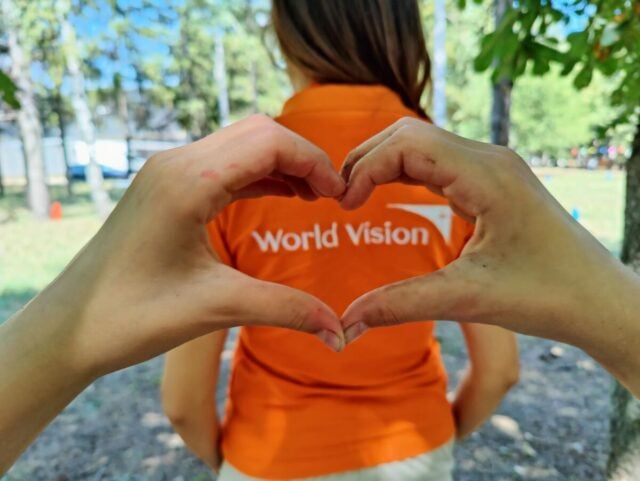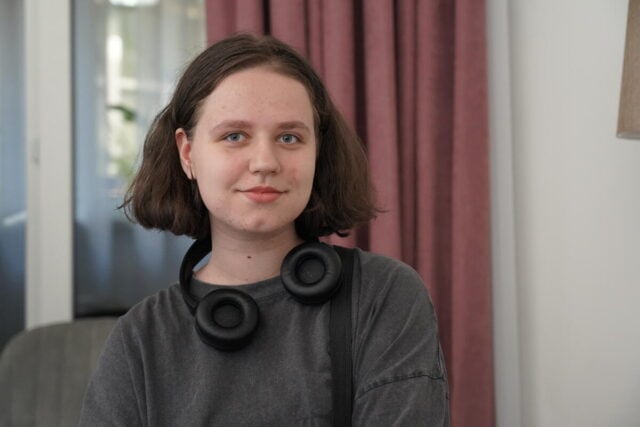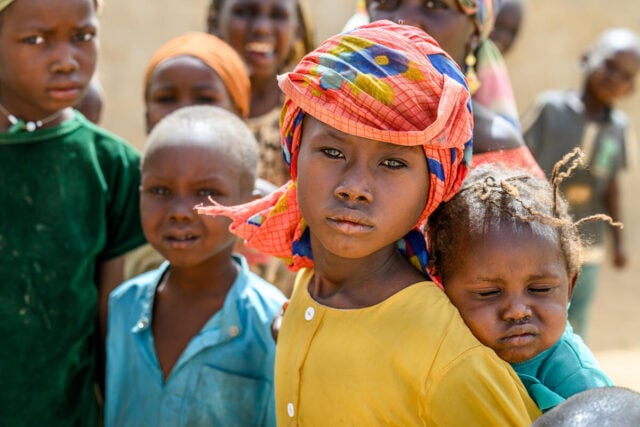
Displaced persons
Displacement crises around the world continue to worsen with over 117.3 million people forcibly displaced at the end of 2023. An estimated 14 million people from Syria are displaced. And Sudan faces the worst internal displacement crisis in the world with nearly 11 million people displaced within the country.
Nearly one in four people in the world live in a “fragile context,” where families and communities are affected by disasters, economic crises, conflict, and social upheaval. World Vision is committed to serving in these places where it’s hardest to be a child, having decades of experience providing livesaving support to the most vulnerable people.
World Vision works in 40 of the 60 countries classified by global experts as “fragile,” and in 12 of the 15 classified as “extremely fragile.” Many of these countries are deeply affected by natural disasters and conflict.
We assisted 35.8 million people affected by disasters and emergencies around the world, including refugees and other vulnerable people.
Thanks to the support of World Vision donors around the world in 2023.
Our Approach
What is a refugee?
Refugees are people who had to flee their home country due to war, violence, or persecution, according to the UN Refugee Agency. Refugees are different from immigrants because refugees cannot go home, or are afraid that it is not safe to return. Displaced people have had to leave their homes for the same reason as a refugee, but they are still living within their home country. World Vision works with both refugees and Internally Displaced People (IDPs) in the most fragile places, including Syria, Iraq, and the Democratic Republic of Congo.
Why does World Vision work in fragile places?
We go where humanitarian and development needs are high. If estimates hold true, by 2030, around 80% of the world’s extreme poor will live in fragile states. What’s more alarming is that extreme poverty has a child’s face: the majority of people in fragile contexts are young. As a child-focused organization, we have a clear call to help the most vulnerable children — those who live in fragile states and who are increasingly forced to flee instability within and across borders as refugees.
What programs are most effective in helping families in these situations?
Programs that provide basic necessities while boosting a community’s resilience and self-reliance in the face of disasters and destitution are most effective. Direct assistance for children, households, and communities make a big impact in fragile states, since their governments are often unable to provide basic services. To be most effective, programs need to empower communities and work through local organizations, including churches, mothers’ groups, and farmers’ associations, so that they build local capacity while providing assistance. Programs should also help governments assume responsibility, over time, for service delivery and social protection.
How does World Vision’s work help?
We have worked in the majority of the world’s fragile states for more than 30 years. We know what types of programs work in these contexts, and more importantly, we have longstanding relationships and trust with the communities we serve. Our big focus in fragile states is on developing new approaches to enable transition out of fragility, especially in program areas where we are strong: water, sanitation, and hygiene; health; livelihoods and food assistance; and child protection, and education. By integrating all these programs, we help to provide communities with what they need most. But no single group or organization can tackle fragility alone, so we partner with churches, donor governments, corporations, and individual supporters across the globe, in addition to local communities, faith bodies, civil society, and public institutions where we work.
Ultimately, our successful programs empower refugees and displaced people and cultivate ingenuity and resilience, so that communities have the know-how, the confidence, and the ability to help themselves and care for their children.
How quickly can a fragile nation move toward resilience?
The journey can take decades, but we don’t have to wait that long to help change children’s lives. We are seeing communities achieve better health, education, livelihoods, nutrition, and gender equality. And while the road is long, sustained donor support is making a difference in the most fragile places.
Refugees and Fragile State Resources
SomRep Positive Deviance Study (pdf)
This study of our emergency response in Somalia found belonging to a savings group and participating in preparedness and early warning activities were consistently related to both community identification of successful coping as well as food security status.
3 ways you can help refugees and those living in fragile contexts
Ways to Give
Feed a refugee child for a month
Violent conflict. Extreme weather. Natural disaster. Tragedies like these have forced an unprecedented number of people around the world from their homes and left many unsure how to feed their families. Your gift will help deliver food to keep kids nourished — and give their parents peace of mind.
Plus, because of grants and partnerships, your gift will multiply 4 times in impact to bless kids and families.
Become a Refugee Responder
Today, a record 100 million people — half of them children — have been forced from home by violent conflict, hunger, war, and natural disasters. Imagine spending your childhood in a refugee camp: being unable to attend school, having no permanent home, living in danger of exploitation.
You can show God’s love to these vulnerable kids and families, right where they are. And thanks to public grants, your gifts will multiply 4 times in impact!
Monthly giving is the most effective way to help children and families who need it most. Plus, it lowers costs, which means more of your gift helps kids!
Ways to Give
Feed a refugee child for a month
Violent conflict. Extreme weather. Natural disaster. Tragedies like these have forced an unprecedented number of people around the world from their homes and left many unsure how to feed their families. Your gift will help deliver food to keep kids nourished — and give their parents peace of mind.
Plus, because of grants and partnerships, your gift will multiply 4 times in impact to bless kids and families.
Become a Refugee Responder
Today, a record 100 million people — half of them children — have been forced from home by violent conflict, hunger, war, and natural disasters. Imagine spending your childhood in a refugee camp: being unable to attend school, having no permanent home, living in danger of exploitation.
You can show God’s love to these vulnerable kids and families, right where they are. And thanks to public grants, your gifts will multiply 4 times in impact!
Monthly giving is the most effective way to help children and families who need it most. Plus, it lowers costs, which means more of your gift helps kids!




